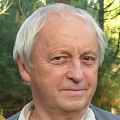As of 30.01.2020
Name of the project: Research of invisible energy, invisible matter and search of cosmologic antimatter using telescopes and detectors of elementary particles
Strategy for Scientific and Technological Development Priority Level: б
Research directions: Cosmology, astrophysics, gravity theory, dark matter, dark energy
Project objective: Developing new experimental methods of searching for dark matter by developing two-phase cryogenic laser detectors
|
Hosting organization
|
Field of studies
|
City
|
Invited researcher
|
Time span of the project
|
|---|---|---|---|---|
|
Centre for Laboratory Astrophysics
Р.N. Lebedev Physical Institute of the RAS - (LPI) |
Space studies |
Moscow |
Kaiser Ralf Ingo
USA, |
2021-2023 |
|
Space Flight Mechanics Laboratory
Moscow Aviation Institute - (MAI) |
Space studies |
Moscow |
Aslanov Vladimir Stepanovich
Russia Svotina Victoria VitalyevnaRussia |
2019-2021 |
|
Laboratory for Research of Stars with Exoplanets
Institute of Astronomy, RAS - (INASAN) |
Space studies |
Moscow |
Piskunov Nikolai Evgenievich
Sweden |
2019-2023 |




